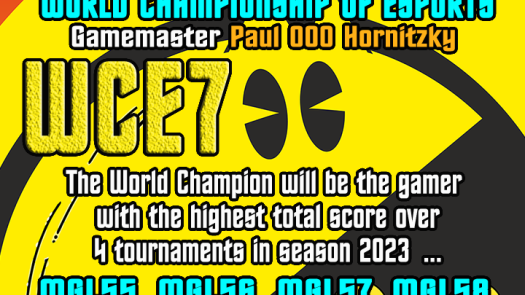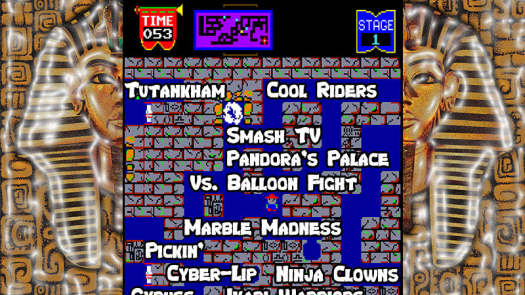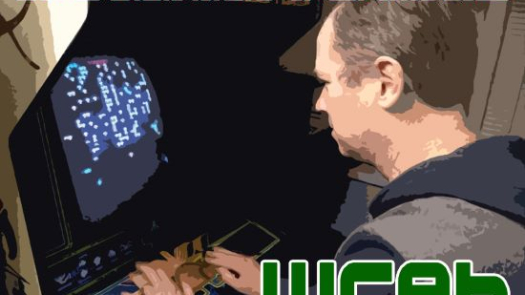With the uprising of esports and competitive games in the modern gaming space, LAN centers are taking a new route than just having computers in their facilities. I sat down with Jason McIntosh, Senior Specialist at ggCircuit Limited LLC, to talk about different options that gaming clubs, colleges, LAN centers, and even big box businesses can use with their product.
How It Began...
First thing, I asked him what their background was and what made them qualified to create this program.
“We have ran eBash Game Centers for the last thirteen years in the midwest.” McIntosh continued, “For ten of those years, we used a product called SmartLaunch to run our LAN centers. In 2008, we started ‘ggCircuit’ as a way to connect LAN centers across the country and do WAN style esports tournaments. We did that for a few years then it got to be too much work. In 2012 we started ggCircuit.”
Jason went on to explain that ggCircuit was like virtual Chuck E. Cheese tickets where people can play hourly based coins for being logged in. It also allowed them to link to League of Legends, Dota 2, and Smite, as well as pull match stats, in an all-in-one system. ggCircuit was connected with SmartLaunch, CyberCafe Pro, and other software products as a separate service.

“Fast forward to the fall of 2016,” he explained. “We were frustrated with old code bases and lack of connection globally to these products and started our own LAN center management software called ggLeap. ggLeap is still in beta with version 1.0 coming out at the end of the year, but we support over 300 LAN center locations around the world.”
ggLeap focuses on the user management, time management, employee management, game license management, as well as other needs through a cloud server. The ggLeap client is installed on each machine connecting to the individual location’s unique server.
“On a broader scale, it allows us to connect these locations all together in one place. So, with our ggCircuit system we can create global leaderboards, like this fullscreen one in Albania, and players automatically participate just by walking in the door of a LAN center. Being in the cloud also allows us to go to game developers and get licenses that can be shared globally. In an essence, we allow LAN centers and esports arenas to manage their location and gamify it through our ggCircuit system.”
Where Can It Be Used?
When asked about how colleges can utilize their software, he, excitedly, lit up.
“I would liken us to a minor league system for esports,” McIntosh mused. “We are in a few universities right now, such as UCI, Lambton, and Boise State, and this is a growing need for universities. ggLeap allows colleges to keep track of their scholarship players, that they are playing the right games, and keep an eye on stats altogether. Technically they could ‘scout’ the entire ggLeap network if they wanted to.”
He explained that smaller events are not left out in their massive system. “eBash ran the esports area at Gen Con for the last 5 years. So, ggLeap can and is used for pop-up events as well. We see 10,000 gamers at Gen Con each year and do casual gaming and 1000 competitive events during those 4 days.

Overall, ggCircuit and ggLeap is closing in on 4,000 screens worldwide, working alongside casinos that are interested in putting esports entertainment at their venues. But, the most notable was their contribution to retail stores.
“We've done two projects with Dell for customer user interfaces using the ggLeap back end, which was in Best Buy stores and Office Depot stores through Alienware and Dell Gaming lines. You know how Best Buy has an Apple area? Dell setup Alienware areas in fifty Best Buy stores that had seven different models on the floor. Our system was used to auto-detect the model load the information, graphics and options into the custom user interface and control the desktop. Due to our ability to distribute game licenses they were able to do game launches through Steam on selected models so customers could try out the machine before buying and taking home.”
My next concern was on pricing, which he laughed and explained that there’s different tiers, depending on the number of PCs needing the software. Purchasers should expect $29 per month for up to 20 PCs, $59 per month for up to 40 PCs, and $99 for up to 60 PCs. There’s an additional enterprise edition that starts a $120 and goes up, depending on the needs. Universities can grab a $3000 annual license. “We've talked with some high schools,” he added. “But, we aren't clear on our model for them as of yet. We'd like to do a ‘club version’ for high schools that would like to use us, which would be a free version, but haven't yet decided on our direction just yet.”
What Do Users Get Out Of Using It?
Next, Jason explained that prizes come into play with their systems, as well. People can play games, earn coins, and win those prizes. Each location using the software can create their own prize vault, which can be anything from free gaming hours, to drinks, to full physical prizes.
“We also create global prizes that customers have access to,” he said. “Game licenses, digital content, and skins are redeemed in store and sent directly to their email. Currently, our focus is on keeping things interesting at the specific locations. But, who's to say in the future we may make an at home version that may earn a lower rate of coins playing at home?”
I asked him if the software gives people the ability to create full events and brackets all self-contained.
“That is actually another way of earning coins. Much like the prize vault, local and global tournaments can be created. We integrate with the Challonge API and you can create a tournament for anything, doesn't have to be a video game.”
Jason used the tournament brackets as a way to explain the coins and prizes, but went into more detail on their company mission.
“Players can earn fifty coins for participating, fifty for a tournament win, and then fifty more to win the whole thing. Players can see their profile as well as specific game stats right on the ggCircuit website, as well as game stats, coins, and more. Also, we are much more than just a software company in that we try to help esports locations stay interesting by providing events. We do a quarterly season where all locations vye to be the best in the world. It's an 8 week season with 1 week of finals. We take the best League of Legends and Dota 2 players in each location and give them a score based on what they do each week.”

He elaborated on the partnerships they make with different event centers for their own held events.
“We do loot crates to participating centers with peripherals from sponsors and weekly medals so that the participants have incentive to continue playing. We also send our version of the Stanley cup trophy to the winning center of the season. We are also revitalizing our WAN tournament concept with the Zehn Masters series, which is thirteen locations and teams in the US doing qualifiers across ten esports titles. Those qualifier winners will do a WAN based tournament to do an overall score across all ten titles. Both players and locations will receive a piece of the $20k prize pool after all is said and done.”
If that wasn't enough, they are also opening up new esports centers themselves.
“We just opened an eBash in Peoria and have agreed to one in Valley Forge, PA, as well as Toronto. We’re currently working on one somewhere in Arizona. For those that need consulting as a start up LAN center, we're providing consulting packages to help alleviate the thirteen years of headaches and experiences that we've been through.
What Does The Future Hold For ggCircuit?
Based on the fact that their software does so much, I asked, simply, what can’t it do.
“I wish it could make me a cup of coffee. We've only been at it a year, but we have some grandiose visions for where it will go. We have been very grassroots in our development. Money and resources have been our bottleneck.”
He explained the plan for 2018, which involves a lot more oomph than this prior year.
- Finish full point of sale and product ordering via the client by December 2017
- Better ranking levels as people continue to play
- Achievements within the system that stay with players
- More PC game integrations
- Console game integration
- Next games to be integrated are Overwatch, World of Tanks & CS:GO
"We are striving to become the standard software or esports location management,” He concluded. “A way to gamify locations around the world into one network. We want players to compete at their local location and have a global reach. This is through our competition system ggCircuit that recognizes their daily accomplishments, provides them coins for gameplay, and allows them to redeem physical and digital prizes."
A lofty goal for certain, but Jason McIntosh seems entirely confident in the ability of the gg platform to grow and evolve into something both phenomenal and universal throughout the coming years.







